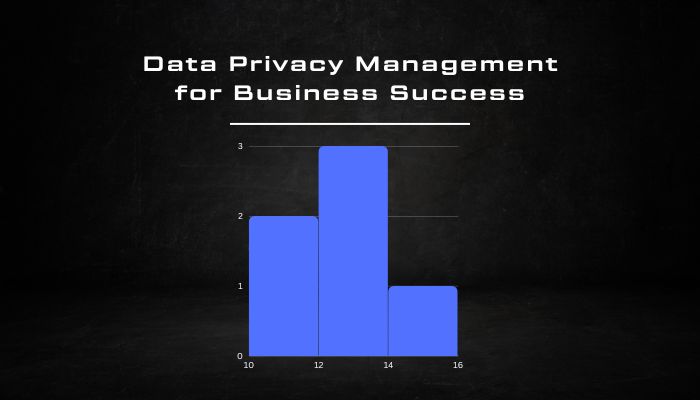Modern businesses now deal with huge bundles of customer data. This includes customer bank details, social security numbers, home addresses, and everything else you can imagine. There’s a lot of data being handed over to businesses here — which is why data privacy management is key.
The days of not caring about customer data are gone. Now, all businesses (yours included) are responsible for better protecting your customer data. Otherwise, non-compliance can lead to all sorts of trouble, such as receiving big fines. Often, these fines can go up to eight figures, which is why you need to be extra careful.
Data Privacy Management itself includes a variety of different elements, such as:
- Keeping customer data secure
- Always ask for consent before you collect any personal data from customers.
- Ensure you stay compliant with the customer data and don’t take advantage of it.
Off the top of your head, all of the big brand names you can think of, including the likes of Apple and Microsoft, take great care of their customer data. In fact, these companies are setting the standard for everyone else, so there’s a lot you can learn from them.
How to Make Data Privacy Management Easier
As a business manager, you’re probably very busy daily. Therefore, you’ll want a fast and easy way to simplify the data privacy management process for you and your employees. Luckily, you only need to visit surecloud.com and get GRC software. After, you’ll be able to streamline your data privacy management and improve your management of data privacy obligations.
Benefits of Data Privacy Management
When your organization establishes a data privacy management framework from top to bottom, you’ll be able to experience some great benefits. Want to know the best ones? Here’s a closer look:
- Prevent financial damages
- Maintain a positive business reputation
- Prevent legal troubles and legal action
Remember, keeping modern customers on your side is all about establishing trust. When your customers can see that you care about their data and are following all the steps to protect it, this will make them feel happy and content. As a result, they’ll be much more likely to keep buying products from you.
However, if you fail to manage your customer data effectively, you’ll risk getting lost or stolen. When this happens, your customers will be extremely upset and will likely stop using your business. Also, some customers might even file lawsuits against you, which is a scary prospect for any business owner to think about.
Best Practices for Data Privacy Management
In today’s rapidly evolving digital landscape, ensuring the privacy and security of customer data has become more crucial than ever. As a savvy marketer, you understand the significance of data privacy management and its impact on your business’s reputation and bottom line. Building on the foundation we established earlier, let’s delve further into some best practices to help you navigate this complex terrain.
Develop a Robust Data Privacy Policy
Crafting a comprehensive data privacy policy is the first step towards establishing trust with your customers. Your policy should outline how you collect, store, and protect customer data, as well as how you use it for business purposes. Be transparent and concise, ensuring that your customers have a clear understanding of their rights and the measures you take to safeguard their information.
Regularly Educate and Train Your Employees
Your employees play a pivotal role in data privacy management. It’s essential to provide them with regular training sessions to enhance their understanding of privacy protocols and best practices. Educate them about potential risks, such as phishing attacks or social engineering, and empower them to identify and report any suspicious activities promptly. By fostering a culture of data privacy awareness, you can minimize the likelihood of internal breaches.
Implement Strong Access Controls
Controlling access to customer data is paramount in mitigating the risk of unauthorized access or data breaches. Implementing strict access controls ensures that only authorized personnel can access sensitive information. Consider employing multi-factor authentication, role-based access controls, and encryption techniques to bolster the security of your data repositories.
Conduct Regular Security Audits and Assessments
To stay ahead of emerging threats and vulnerabilities, it’s crucial to conduct regular security audits and assessments. Collaborate with cybersecurity experts to identify potential weaknesses in your systems and infrastructure. By proactively addressing vulnerabilities, you can fortify your data privacy management framework and ensure the highest level of protection for your customers’ information.
Stay Abreast of Regulatory Changes
Data privacy regulations are constantly evolving, and it’s essential to stay up-to-date with the latest developments. Keep a close eye on legislative changes, such as the General Data Protection Regulation (GDPR) or the California Consumer Privacy Act (CCPA), and adapt your policies accordingly. By aligning your practices with regulatory requirements, you can demonstrate your commitment to data privacy and maintain compliance.
Also Read, Security Practices To Prevent Data Breaches
Summary
As the future unfolds, your business is probably going to handle even more customer data than it already is. You need to be prepared for this if you want to experience the above-mentioned benefits and ultimately keep your customer data protected from cybercrime.
Remember, countless businesses around the world are now investing more money into their data privacy management strategies and cybersecurity. Don’t be afraid to do this, too, as protecting your customer data is absolutely invaluable.
